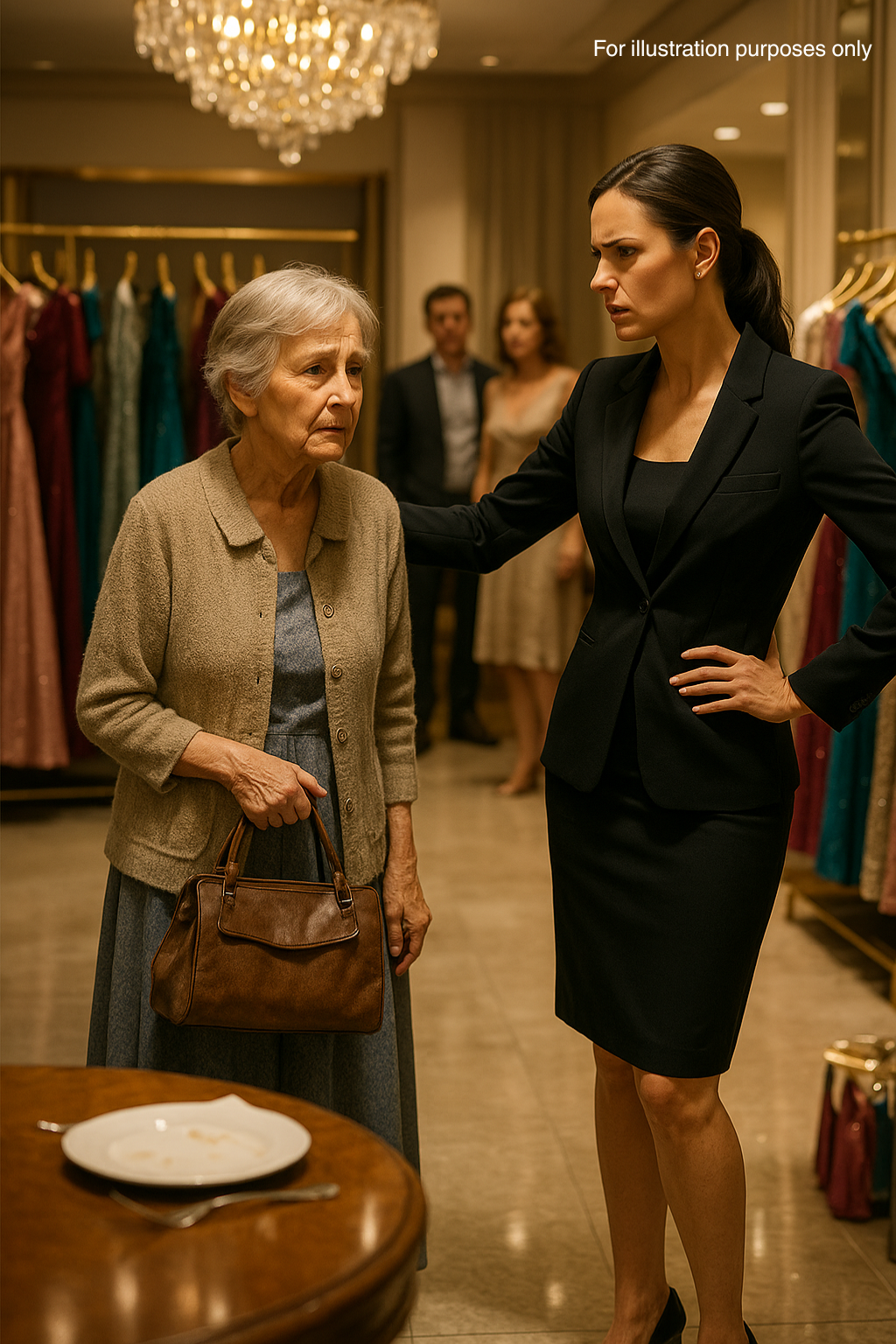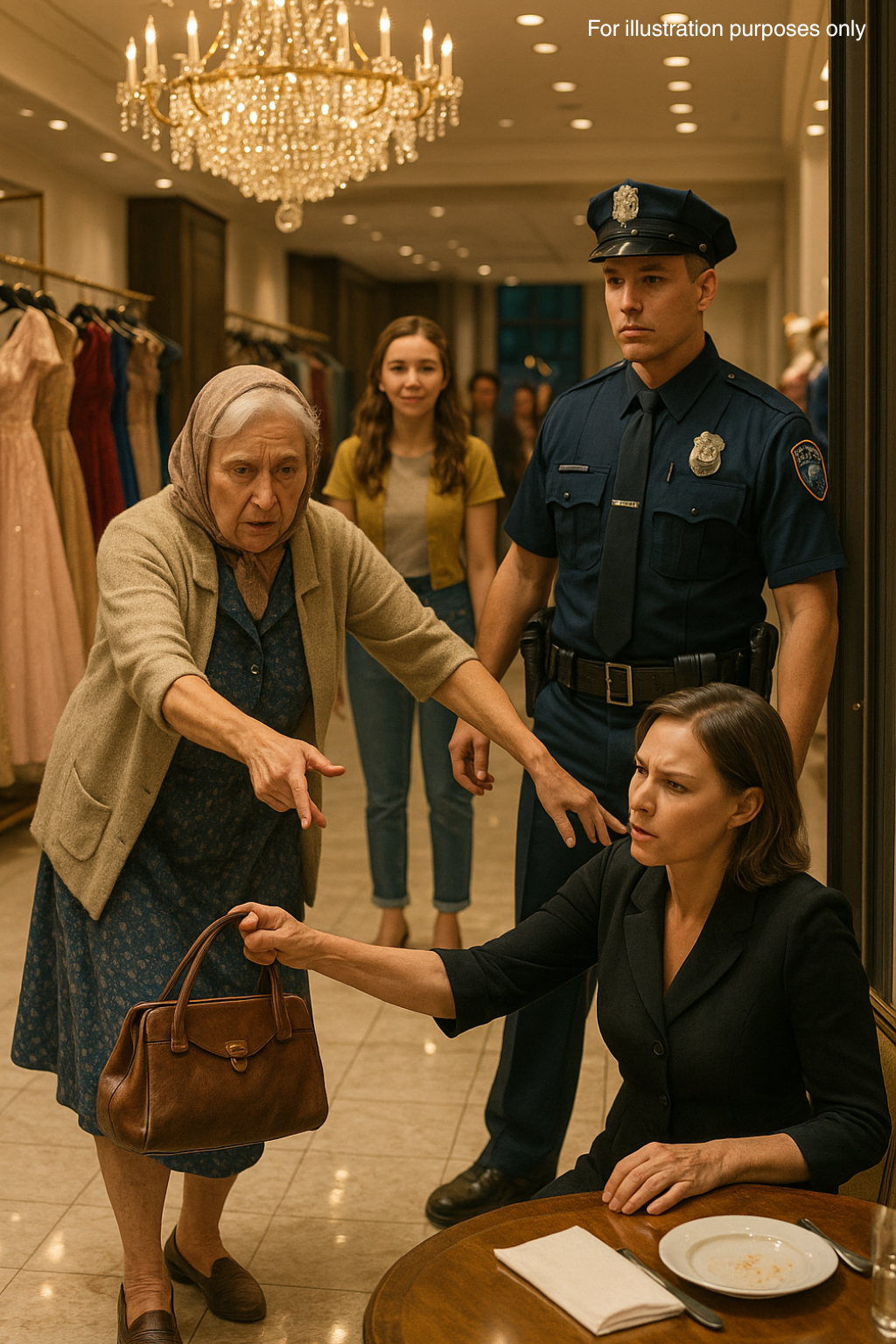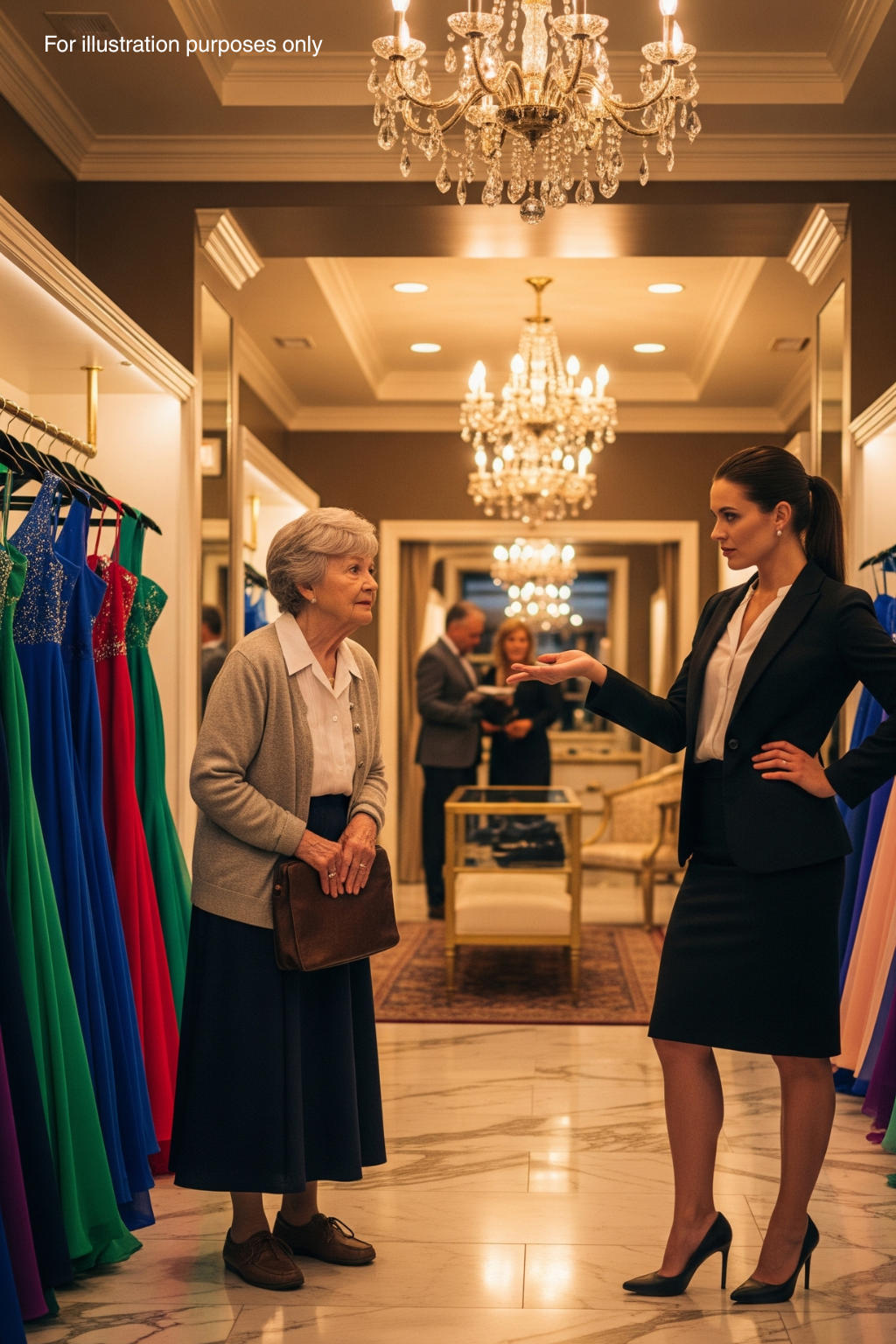Mildred had always been proud. Even after retiring from her job as a school librarian, she refused to ask for help. Life wasn’t easy on her small pension, but she managed—carefully budgeting, clipping coupons, and putting a little away for her “end-of-life fund.”
But her granddaughter, Clara, was the one bright star in her life. At eighteen, Clara brimmed with promise—her laughter filling Mildred’s quiet apartment whenever she visited. Graduation was just weeks away, and prom loomed large.
When Clara told her she wasn’t going, Mildred’s heart ached.
“It’s not worth it, Grandma. Dresses cost too much. Besides, I don’t even have a date.”
Mildred could hear the disappointment Clara was trying to mask. She remembered her own prom night, decades earlier, when her late husband—then a nervous, lanky boy in a borrowed tux—had twirled her around the dance floor. That one evening had sparked a lifetime of love.

She wanted Clara to have that moment.
That night, she opened the small wooden box she kept hidden at the back of her closet. Inside lay the money she’d saved for her funeral—worn bills folded neatly. It wasn’t much, but it was enough.
Maybe memories matter more than gravestones, she thought, clutching the envelope.
The next morning, Mildred dressed carefully. Lavender blouse, pearl buttons, her nicest handbag. She wanted to look like someone who belonged in the glamorous boutique she had circled in the mall directory.
The boutique was dazzling—mannequins draped in silk, mirrors catching the light like diamonds. Mildred’s heart fluttered as she stepped inside.
“Welcome,” a tall saleswoman said, though her eyes skimmed over Mildred’s cane, her worn shoes. “Can I help you?”
“I’d like to see prom dresses—for my granddaughter.”
The woman’s painted smile didn’t reach her eyes. “Our gowns start at several hundred dollars. Perhaps Target might have… something more appropriate?”
Mildred’s cheeks burned. She steadied her voice. “I didn’t ask for cheap. I asked for dresses.”
Reluctantly, the woman—her name tag read Beatrice—led her down the aisles. But instead of helping, she hovered, arms crossed. When Mildred reached out to touch a soft satin gown, Beatrice snapped:
“Careful. These are delicate. And just so you know—cameras are everywhere.”
Mildred froze. “Are you… accusing me of stealing?”
“Not accusing,” Beatrice said smoothly, “just reminding.”

Humiliation choked her. She turned, shoulders trembling. “I can see I’m not welcome here.”
As she shuffled toward the exit, her handbag slipped, spilling coins and tissues across the polished floor. Mildred knelt, fingers fumbling, tears blurring her sight.
That’s when a steady voice broke through.
“Ma’am, let me help you.”
She looked up to see a young man in uniform crouching beside her, his eyes kind.
His name was Leonard Walsh, a police cadet. As he handed back her scattered belongings, Mildred found herself telling him everything—Clara, the prom, her savings, Beatrice’s cruelty.
By the time she finished, Leonard’s jaw was tight. “That’s not right. Come on—we’re going back.”
“Oh, no,” Mildred protested weakly. “I can’t bear—”
“Yes, you can,” Leonard said firmly. “You came to buy a dress. And you will.”
When they reentered the boutique, Beatrice’s face went pale. “Oh! Officer—what a surprise.”
Leonard’s voice was calm but unyielding. “This lady was treated with disrespect. She’s here to shop. And she will do so without harassment.”
The store manager soon appeared, drawn by Leonard’s complaint. Beatrice’s fake smile dissolved as her boss’s frown deepened.

Meanwhile, Mildred walked the racks alone for the first time. Then she saw it: a flowing lavender gown with delicate beading, shimmering softly under the lights.
“This one,” she whispered.
At the counter, the manager apologized profusely and offered a discount. Leonard, ignoring Mildred’s protests, quietly paid half.
Outside, in the golden sunlight, Mildred turned to him with tears in her eyes. “You’re a rare young man, Leonard Walsh. Thank you—for standing up when I couldn’t.”
He smiled shyly. “Just doing what’s right, ma’am.”
Weeks later, Clara stepped into her prom in that lavender dress. Her eyes sparkled, her smile radiant.
“Grandma,” she whispered, “I feel beautiful.”
Mildred blinked back tears. “That’s because you are beautiful. Now go dance, sweetheart. Go make memories.”
As Clara disappeared into the glittering crowd, Mildred felt her husband’s presence—like a whisper of that long-ago dance night, reminding her how one act of love can ripple through generations.
And in the corner of the room, Leonard Walsh, the young cadet, watched with quiet pride, knowing he had been part of something far greater than simply “buying a dress.”
Something about dignity. About kindness. About love.